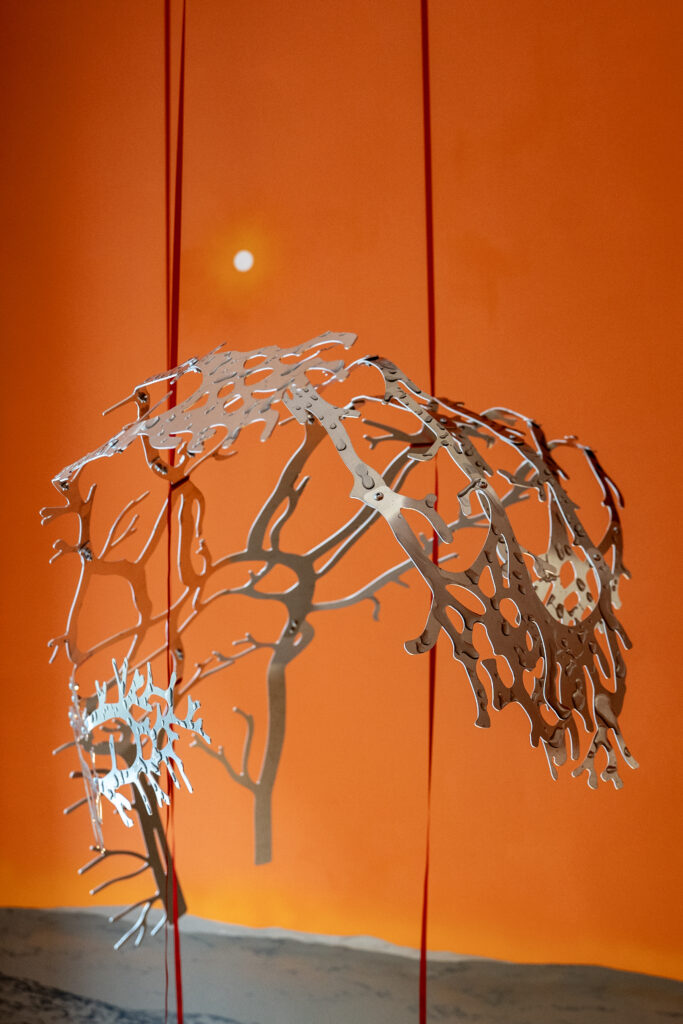
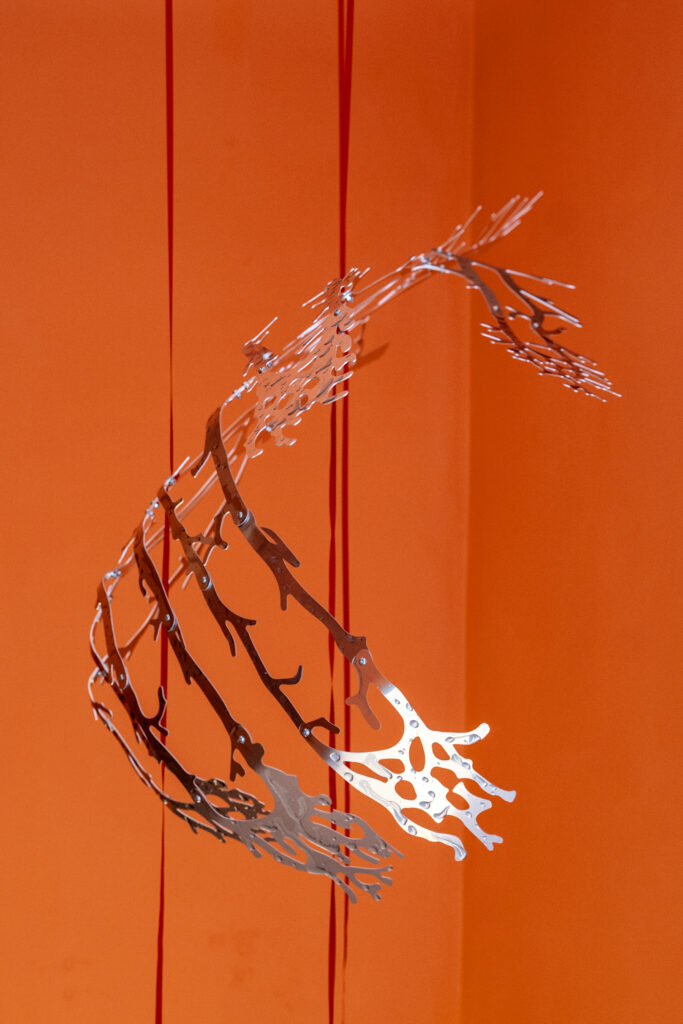
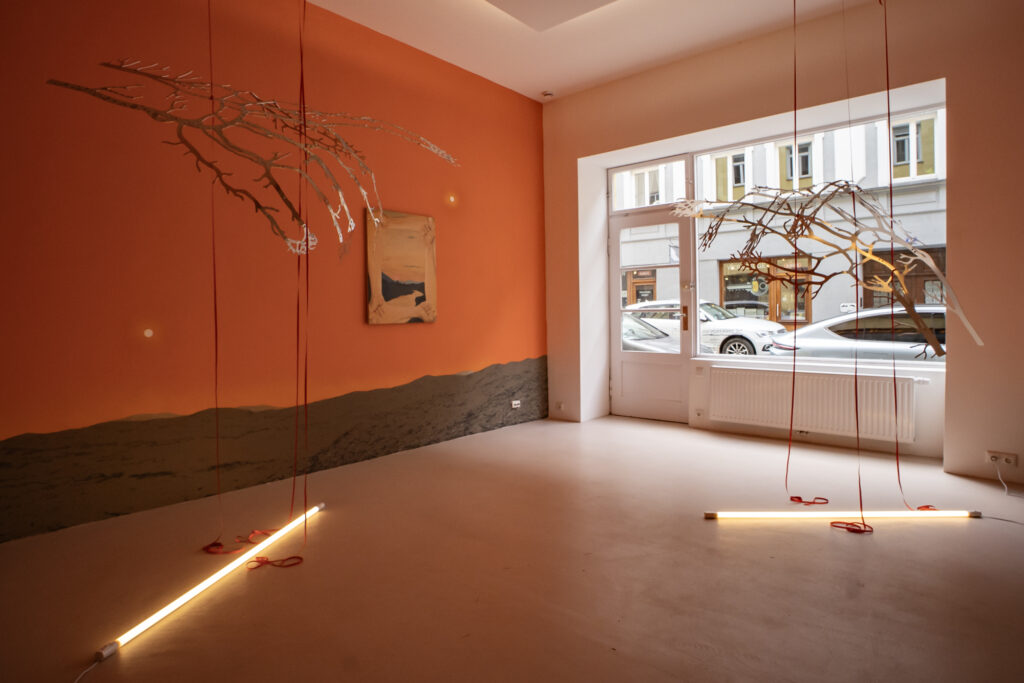
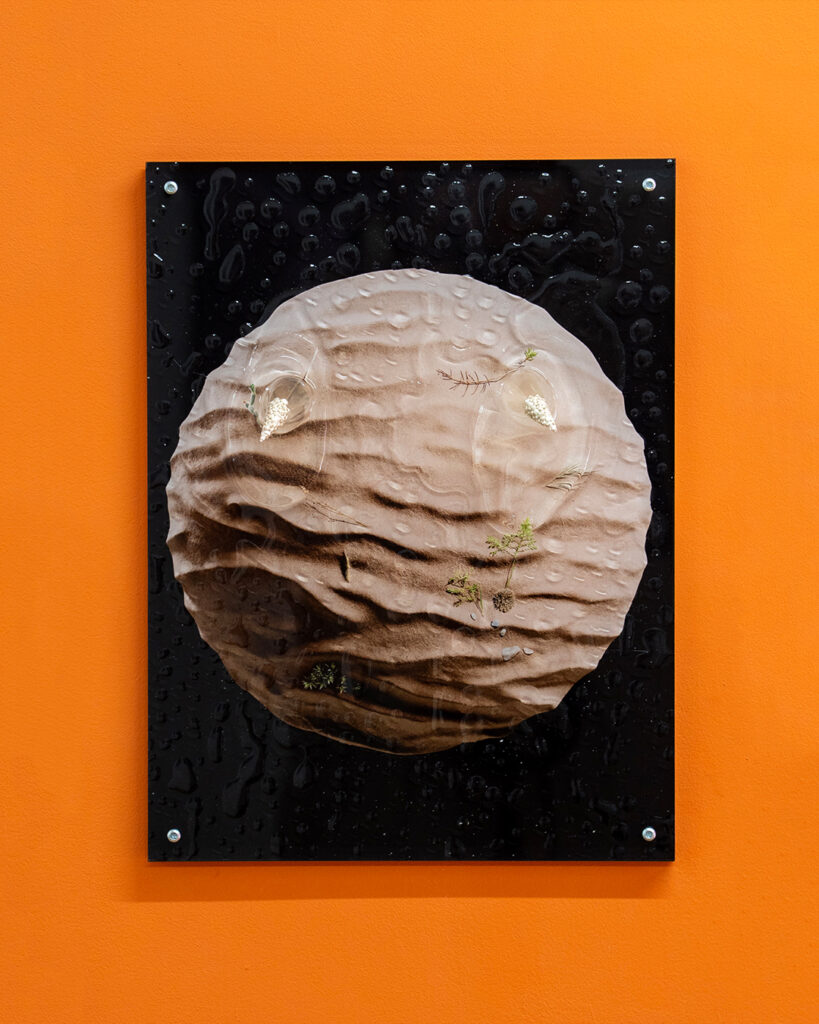
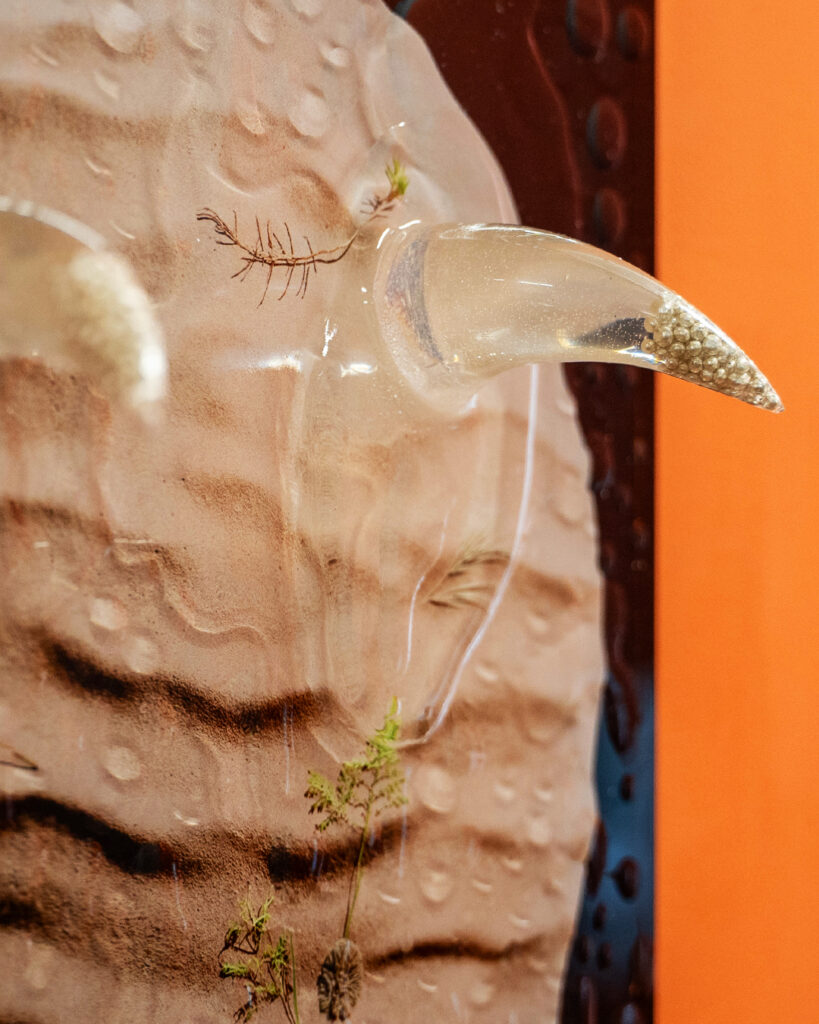
Embodied Bordering *2025
Exhibition „Inner Frontier“ at NEBYULA Rosa Stern e.V.
part of Various Others (Munich Gallery Weekend)
side- specific installation / various dimensions
In their duo exhibition The Inner Frontier, Anna Raczyńska (Leipzig) and Michał Zawada (Kraków) investigate boundaries—geographic, bodily, political, and psychological. Developed through a cultural exchange between Kraków and Munich, initiated by Rosa Stern Space and the Piana Gallery Foundation, the exhibition stages both dialogue and confrontation: between painting and sculpture, tradition and transformation, canonical art histories and Polish artistic perspectives.
Both artists share biographical and artistic ties to Poland, yet their practices diverge in medium and method. Zawada, a painter, navigates between realism and surrealism, reworking classical landscape tropes—forests, volcanoes, sunsets—into speculative, posthuman worlds. His canvases evoke an eerie serenity: a nature that survives us, indifferent to the human gaze. Beneath their surface lies a critique of colonial ideologies, masculinist histories, and the illusion of control over land and meaning.
Raczyńska’s sculptural interventions bring similiar themes into physical space. Her monumental aluminium hands—digitally designed, industrially fabricated—span the exhibition room like suspended bodies. Referencing Michelangelo’s Creation of Adam, they suggest not divine spark, but a posthuman genesis where the encounter is no longer between God and (hu-)men, but between machine and flesh. Visitors are forced to navigate through these forms, embodying the tension between creation and alienation, presence and absence.
At the core of both practices lies a reflection on shifting borders: not only geopolitical ones, such as those between Germany and Poland, but also those between genders, media, ideologies, and states of being. This is further emphasized in a collaborative wall mural spanning three sides of the room. Created during shared residencies in Leipzig and Kraków, the work responds to recent political shifts in Poland—toward liberalization, separation of church and state, and a reckoning with the legacy of cultural restriction. The exhibition resists easy readings of identity or belonging; instead, it offers a sensorial space where such concepts are felt, not explained.
Raczyńska’s material choices—aluminium, resin, plexiglass—reassert her interest in labor, resistance, and the rewriting of gendered artistic codes. Her smaller edition piece, referencing the Błędów Desert, fuses folklore and fabricated matter into a subtle meditation on artificiality, myth, and cultural memory.
In their collaboration, Raczyńska and Zawada reveal that art is not merely a mode of expression, but an act of negotiation—across forms, histories, and frontiers. This exhibition does not resolvet ensions; it inhabits them. And in doing so, it traces a new cartography—of loss, resistance, and the quiet potential of becoming otherwise.
Text: Theresa Retzer